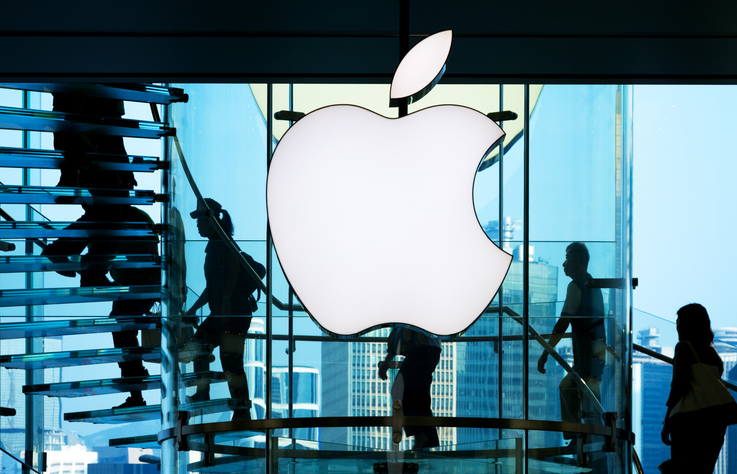The largest 25 companies by market cap worldwide can have an outsized impact on many, if not most, American portfolios. Leading the charge are tech titans like Apple and Microsoft, whose market caps hover above the $3 trillion mark, showcasing their dominance in personal computing, software, and consumer electronics. NVIDIA, with its recent leap in market value, underscores the pivotal role of AI and high-performance computing in today’s market.
For help building a diversified portfolio or other investment strategy, consider speaking with a financial advisor.
The Top 25 Companies By Market Cap
However, the list of top 25 companies by market cap is not solely dominated by tech. Berkshire Hathaway, under Warren Buffett’s stewardship, represents a conglomerate with interests across various sectors, from insurance to consumer goods, reflecting traditional investment strategies in a modern market. Companies like Amazon and Alphabet Inc. (Google) not only highlight the importance of digital services but also their expansive reach into almost every aspect of daily life, from shopping to information access.
This introduction sets the stage for a deeper exploration into what makes these companies not just financially successful but also culturally and technologically significant. From the oil and gas sector with Exxon Mobil to the pharmaceutical industry with Eli Lilly, each company on this list contributes uniquely to the global economic fabric.
1. Apple (AAPL)
Market Cap: $3.19 Trillion
Stock Price: $213.55
Apple is a multinational technology company that designs, manufactures and markets consumer electronics, computer software and online services.
The company’s best-known products include the iPhone, iPad, Mac, Apple Watch and Apple TV. Apple’s business model is based on the sale of its hardware products, as well as the sale of digital content and applications through its App Store and other digital platforms. The company also generates revenue from services such as Apple Music, iCloud and Apple Pay.
Apple‘s ecosystem of hardware, software and services is designed to work seamlessly together, creating a unique user experience and driving customer loyalty.
2. NVIDIA (NVDA)
Market Cap: $3.886 Trillion
Stock Price: $159.34
NVIDIA designs and manufactures graphics processing units (GPUs), central processing units (CPUs) and system-on-a-chip units (SoCs) for the gaming, professional visualization, data center and automotive markets. The company’s products are used in a wide range of applications, including artificial intelligence, deep learning and accelerated computing.
NVIDIA’s business model is based on the sale of its chips and the licensing of its intellectual property. The company also offers a range of software and services for its products.
Sign up for the Market Minute newsletter for news that may affect NVIDIA and other potential investments.
3. Microsoft (MSFT)
Market Cap: $3.078 Trillion
Stock Price: $498.84
Microsoft‘s best-known products include the Windows operating system, the Microsoft Office suite of productivity software and the Xbox gaming console. Microsoft’s business model is based on the sale of its software products and services, as well as the sale of hardware devices, such as the Surface tablet and the Xbox console.
The company also generates revenue from advertising through its Bing search engine and from its cloud computing services, such as Microsoft Azure.
4. Alphabet (GOOG)
Market Cap: $2.184 Trillion
Stock Price: $180.55
Alphabet is best known as Google based on the company’s flagship product. Alphabet’s best-known products also include the Android operating system and Chrome web browser.
Google’s business model is based on the sale of advertising through its search engine and other platforms, as well as the sale of hardware devices such as the Pixel smartphone and the Google Home smart speaker.
The company also generates revenue from its cloud computing services, such as Google Cloud, and from its YouTube video platform.
5. Amazon (AMZN)
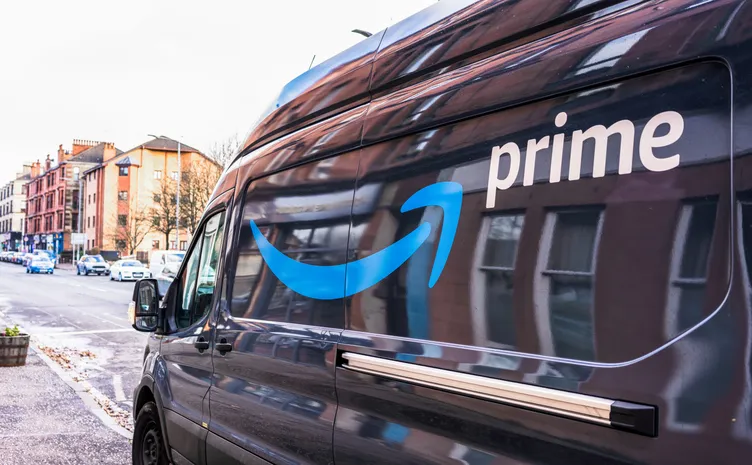
Market Cap: $2.372 Trillion
Stock Price: $223.31
Amazon, founded by Jeff Bezos in 1994, has grown from an online bookstore into a global powerhouse in e-commerce, cloud computing, and entertainment.
Its flagship service, Amazon Web Services (AWS), dominates the cloud computing market, while Amazon Prime offers subscribers expedited shipping, streaming services through Prime Video and a vast selection of digital content.
The company’s expansive ecosystem includes Alexa, its voice-activated assistant, and a significant presence in groceries with Whole Foods, making Amazon a multifaceted entity in technology and retail.
6. Meta (META)
Market Cap: $1.808 Trillion
Stock Price: $719.01
Meta Platforms, Inc., formerly known as Facebook, Inc., is a multinational technology conglomerate based in Menlo Park, California. Founded by Mark Zuckerberg, Eduardo Saverin, Andrew McCollum, Dustin Moskovitz and Chris Hughes in 2004, the company is one of the largest social media and technology companies globally.
Meta owns and operates a range of popular social media platforms and services, including Facebook, Instagram, WhatsApp and Oculus VR. The company employs over 70,000 people worldwide and operates in over 150 countries.
7. Berkshire Hathaway (BRK-B)
Market Cap: $1.046 Trillion
Stock Price: $485
Berkshire Hathaway is a publicly traded investing firm. Run by famed investor Warren Buffet, the main operations of this company are to manage investment portfolios and to hold shares of invested businesses.
In this way, investing in Berkshire Hathaway operates somewhat like investing in a mutual fund or ETF rather than a traditional stock, as the company’s profits derive from its underlying investment returns.
8. Eli Lilly (LLY)
Market Cap: $700.836 Billion
Stock Price: $780.67
Eli Lilly and Company, based in Indianapolis, Indiana, is a major pharmaceutical firm established in 1876. It focuses on the development and manufacturing of medications across various therapeutic areas, including diabetes, oncology and neuroscience.
The company is known for its contributions to medical research and the production of widely used drugs, such as insulin and cancer treatments. Eli Lilly continues to play a significant role in the global healthcare industry.
9. Broadcom (AVGO)
Market Cap: $1.294 Billion
Stock Price: $275.18
Broadcom is a technology and communications firm that makes hardware and software in and around the networking space.
It has a wide variety of products, with a focus on computer network infrastructure and security. The most notable consumer-facing brand that it operates is the security software company Symantec.
10. Tesla (TSLA)
Market Cap: $1.016 Trillion
Stock Price: $315.35
Tesla, Inc. is a leading electric vehicle and clean energy company that designs, manufactures and sells electric cars, solar products and energy storage systems. The company’s mission is to accelerate the world’s transition to sustainable energy.
Tesla‘s business model is vertically integrated, allowing it to control every aspect of its supply chain, from raw materials to the final product. The company also operates a network of fast-charging stations for its electric vehicles.
Sign up for the Market Minute newsletter for news about these companies and the wider financial markets.
11. Walmart (WMT)
Market Cap: $784.954 Billion
Stock Price: $98.36
Walmart is an American multinational retail corporation that operates a chain of discount department and grocery stores. Founded by Sam Walton in 1962, Walmart has grown to employ over 2 million associates worldwide.
The company’s business model revolves around offering a wide variety of products at everyday low prices, leveraging its massive scale for bulk purchasing and efficient distribution. Walmart’s operations extend beyond physical retail, with a significant online presence through Walmart.com, providing e-commerce services that complement its brick-and-mortar stores.
The corporation also engages in various other ventures, including Walmart Financial Services and Sam’s Club, a membership-only warehouse club.
12. UnitedHealth (UNH)
Market Cap: $279.989 Billion
Stock Price: $308.55
UnitedHealth, more commonly known as United, is a healthcare conglomerate.
Like many large companies, it has many different lines of business within its space. This includes both healthcare distribution, such as doctors and clinics, and healthcare payment, such as insurance. It also operates many different services within the healthcare system, such as both clinical and financial infrastructure.
13. Exxon Mobile (XOM)
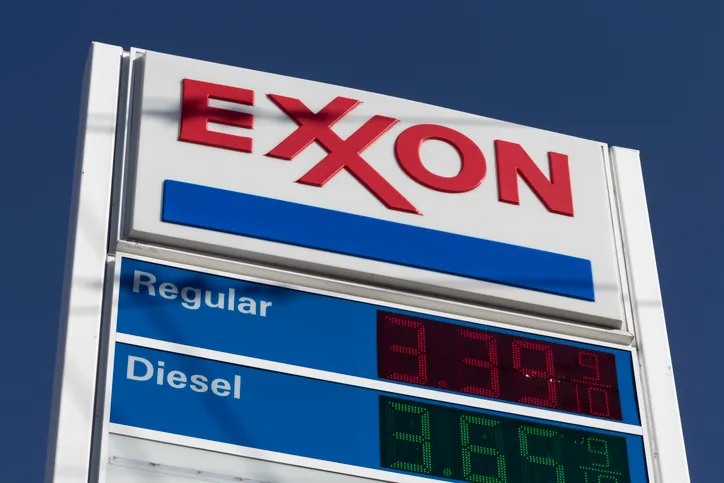
Market Cap: $483.542 Billion
Stock Price: $112.20
The energy industry tends to be volatile, and Exxon Mobil is no exception. This is an oil and gas company that primarily works in the extraction, refinement and distribution of various kinds of fuel.
This has tended to make the company very wealthy, as energy is a nondiscretionary consumable good, but also highly exposed to oil and natural gas prices, which are notoriously volatile and subject to global risks.
14. Visa (V)
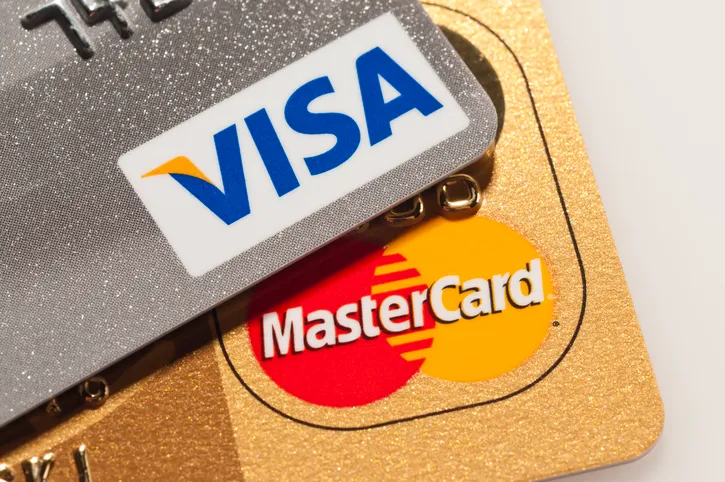
Market Cap: $701.033 Billion
Stock Price: $358.86
Visa is a payment processing and card services company.
Like its main competitor MasterCard, many consumers confuse the role of Visa. This is a financial infrastructure company, not a bank or credit card issuer. Visa operates the systems that accept, communicate and transfer payments. It gets paid by the banks, which issue cards using its network and the vendors that use Visa’s services to accept payment.
15. MasterCard (MA)
Market Cap: $516.917 Billion
Stock Price: $569.24
MasterCard provides a wide range of financial services, including credit, debit, prepaid and commercial cards. It operates the world’s fastest payments processing network, connecting consumers, financial institutions, merchants, governments and businesses in more than 210 countries and territories.
The company’s business model is based on charging fees to merchants for processing transactions and to banks for issuing cards. MasterCard also generates revenue from other services, such as data analytics and consulting.
16. Procter & Gamble (PG)
Market Cap: $377.072 Billion
Stock Price: $160.83
Procter & Gamble (P&G) is a multinational consumer goods corporation headquartered in Cincinnati, Ohio, United States. It was founded in 1837 by William Procter and James Gamble.
P&G’s product portfolio includes a wide range of well-known brands in various categories, such as beauty, grooming, health care, fabric and home care, and baby, feminine and family care. Some of their popular brands include Tide, Crest, Gillette, Pampers, Pantene and Old Spice.
The company operates in over 180 countries and employs more than 100,000 worldwide. P&G is known for its strong focus on innovation, sustainability and corporate responsibility.
17. Johnson & Johnson (JNJ)
Market Cap: $375.371 Billion
Stock Price: $156.01
Johnson & Johnson is a consumer goods company focused on healthcare products.
It has some overlap and competition with Procter & Gamble, but the two companies generally focus on different fields. Where Proctor & Gamble focuses on general consumer goods, Johnson & Johnson specializes in medical supplies and technology.
It is not a pharmaceutical company, in that it does not research new drugs, but this company does research and develop many cutting edge medical devices and technology.
18. Costco (COST)
Market Cap: $437.721 Billion
Stock Price: $987.02
The business model of Costco is one part bulk retailer and one part discount club. Like a handful of other similarly situated retailers, such as Sam’s Club, Costco sells memberships to potential customers. Once a customer has enrolled, they can then buy products in large volumes at significantly discounted prices.
The Market Minute newsletter delivers unbiased market news right to your inbox. Sign up now.
19. Oracle (ORCL)
Market Cap: $666.592 Billion
Stock Price: $237.32
Oracle is a technology company that produces both hardware and software. Its core business model focuses on data storage, cloud computing, communication technology and network infrastructure.
By volume of sales, this is one of the largest technology companies in the world, with products that are integrated into many –if not most – major networks.
20. Home Depot (HD)
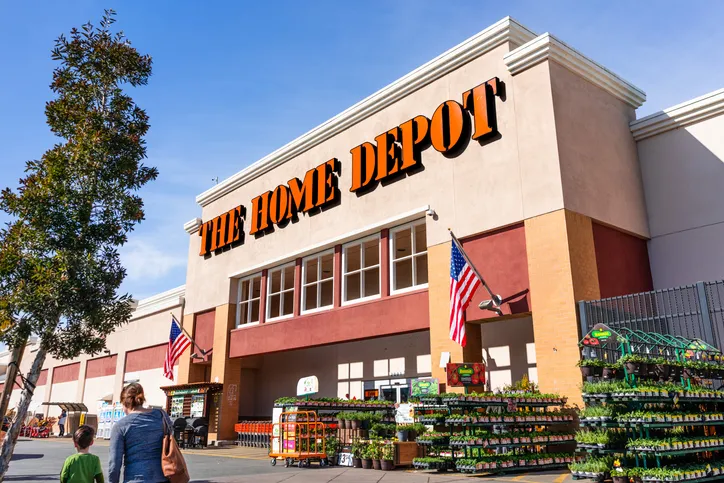
Market Cap: $369.795 Billion
Stock Price: $371.68
Home Depot is a large retailer that focuses on hardware and infrastructure-level home goods.
While it sells some furniture and furnishings, most of Home Depot’s products are either pure hardware, such as tools and lumber, or installed products, such as appliances and fixtures. Most Home Depot stores use the big-box model, operating very large locations designed to provide a one-stop shopping experience for most customers.
21. AbbVie (ABBV)
Market Cap: $334.344 Billion
Stock Price: $189.28
A pharmaceutical company, AbbVie is one of the largest biomedical companies in the world by revenue and volume of sales.
Like many pharmaceutical companies, AbbVie heavily depends on one flagship drug. In this case, that product is Humira, an arthritis and anti-rheumatic drug that accounts for about one-quarter of the company’s revenue. Some of its other core products include Botox and Rinvoq.
22. Bank of America (BAC)
Market Cap: $368.535 Billion
Stock Price: $48.93
Bank of America, headquartered in Charlotte, North Carolina, is one of the largest financial institutions in the world.
It provides a wide range of banking, investment, asset management and other financial and risk management products and services. With a robust network of branches and ATMs, the bank serves individuals, small and middle-market businesses and large corporations globally.
23. Coca-Cola (KO)
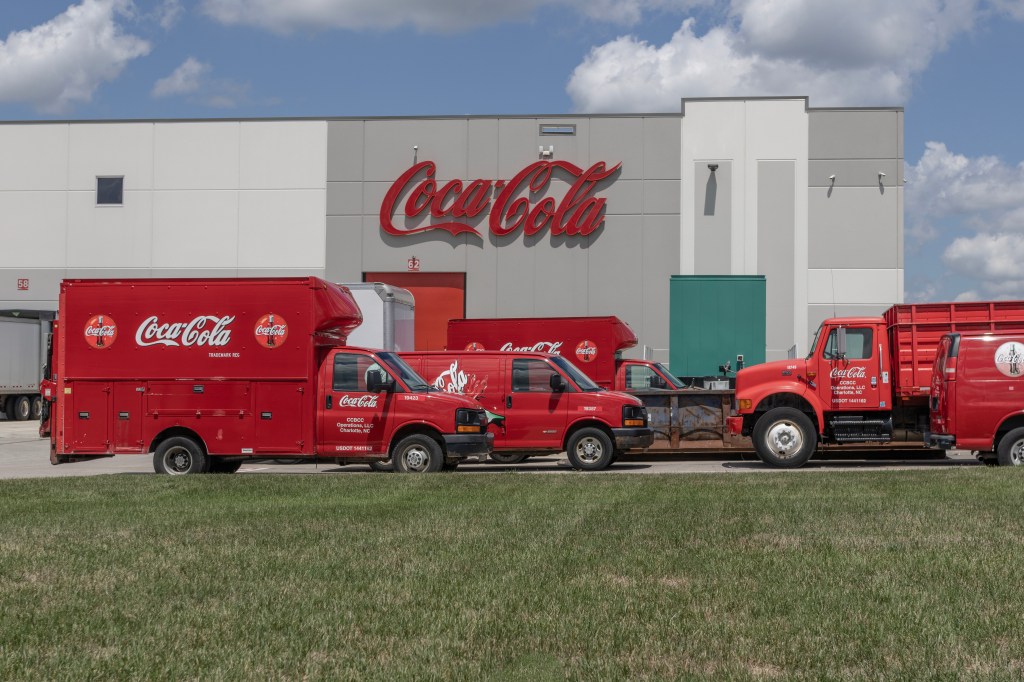
The 25 largest companies by market cap in America represent a large cross section of industries. While the top tier remains dominated by technology firms, below the trillion-dollar mark, you will find everything from pharmaceuticals to retail and beyond. When deciding where to invest, they can be a great starting point.
Ask a financial advisor about the best investments for your portfolio based on your long-term goals and personal risk tolerance.
Tips Stock Market Investing
- A financial advisor can help you build a comprehensive retirement plan. Finding a financial advisor doesn’t have to be hard. SmartAsset’s free tool matches you with up to three vetted financial advisors who serve your area, and you can have a free introductory call with your advisor matches to decide which one you feel is right for you. If you’re ready to find an advisor who can help you achieve your financial goals, get started now. You can also check out SmartAsset reviews.
- If you’re looking to invest in single stocks, one of the best places to start is with the concept of growth vs. value. Here’s what that means, and how each version can fit in your portfolio.
- Keep an emergency fund on hand in case you run into unexpected expenses. An emergency fund should be liquid — in an account that isn’t at risk of significant fluctuation like the stock market. The tradeoff is that the value of liquid cash can be eroded by inflation. But a high-interest account allows you to earn compound interest. Compare savings accounts from these banks.
Photo credit: ©iStock.com/Nikada, ©iStock.com/georgeclerk, ©iStock.com/jetcityimage, ©iStock.com/fcafotodigital, ©iStock.com/Sundry Photography, ©iStock.com/jetcityimage
